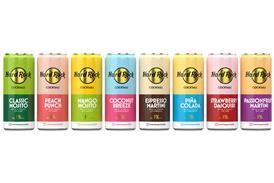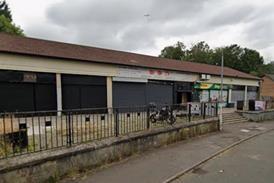And the bad news is that it will probably rise even further. Jonathan Elliot, business services director at Energyhelpline.com, says: "Not only have oil prices gone up but so have gas prices and 25% of electricity comes from gas-fired power stations. The retail prices we are seeing at the moment do not reflect rising wholesale costs, so I personally believe prices will continue to rise.
"The best thing that Convenience Store readers can do is to go for a price-fix now on a long contract."
Energyhelpline.com can certainly help retailers to find the best tariff available and its services are completely free.
"There are a lot of one-man-band type brokers out there," says Jonathan, "but we have a team of people and we take our fees from suppliers, which will be lower than an individual broker could do, and therefore we get the best deals. We negotiate between 300-400 contracts a week for businesses, and suppliers are happy to work with us. They know we do good, clean business."
If you belong to a symbol group then you might have access to a preferred supplier who will offer better rates, but even these groups are horrified at the rising costs to the independent retailer.
"We are aware that many of our retailers - depending upon where they are in their current contracts - are finding prices up by 50%," says Steve Blackmore, supply chain and management information director for Spar UK.
"We do have help available as part of our Smart Savings scheme, which we believe assists a bit. But there is no way retailers can pass these crippling costs on to the consumer."
He points out that five out of six of the UK's Spar wholesalers have a company-owned store division and they are taking a serious look at ways to save energy.
"AF Blakemore's Tates chain now has 200 stores and they are looking at ways of becoming more energy efficient. What they learn will be passed on to their independents."
Energywatch, the independent watchdog for gas and electricity consumers, joined forces last November with Britain's biggest business organisation, the Federation of Small Businesses, to launch a campaign for fairer deals for small businesses from energy suppliers, along with clearer contracts, accurate bills and better standards of customer service.
The watchdog's website (www.energywatch.org.uk) carries monthly updated price comparisons of energy suppliers - although only lists those companies that have signed up to the Energywatch voluntary code of practice.
The Carbon Trust can offer heaps of advice on how to save energy and reckons that up to 20% of a retailer's bill is unnecessary wastage. (The group is funded by DEFRA through the climate change levy, effectively another tax on your bill as 0.43p per kW hour goes towards funding the Carbon Trust.)
The Trust's website (www.carbontrust.co.uk) has sensible downloadable advice on best practice regarding equipment, lighting, air-conditioning and so on, to save both energy and money.
The Carbon Trust points out that the energy used for refrigeration in a small retail outlet can account for half of the total electricity bill. Typically, the energy costs of running refrigeration equipment are three times higher than the original purchase price. These costs can be controlled by as much as 25-50% through maintenance. It advises:
-Unblocking and cleaning evaporator and condenser units can save pounds. A 1°C rise in condenser temperature or a 1°C drop in evaporating temperature can each lead to increased running costs of 2-4%.
- Don't position your equipment (particularly the condenser unit) in a warm environment.
- Overfilling chiller cabinets can prevent good airflow, so keep products away from the vents.
- Night blinds fitted to open-fronted chiller cabinets will cut down on heat loss significantly.
- Make sure your air-conditioning is set to come on only when the temperature reaches 24°C, otherwise you could be paying for both heating and air-conditioning.
- Heating costs rise by about 8% for every 1°C of overheating, so set the heating at 19°C.
- Energy-saving light bulbs use 75% less electricity, generate less heat and last up to 10 times longer. Go for the new T8 smaller diameter fluorescent tube as it is the most efficient, according to a Carbon Trust spokesman.
Top tips
- There are more than 30 licensed gas and electricity companies vying for your business, with cold-calling reps energetically arguing theirs is best. Don't sign on the spot.
- Up to one-third of UK businesses are not on an energy contract, meaning they are regularly subjected to price increases of up to 40%.
A fixed-rate contract will freeze your rate.
- The day that you sign up to a new contract put in your notice, in writing, and keep a copy. Some companies have a policy requiring 90 days' notice or will automatically put you on a 'rollover', which signs you up for another term. ? If you have just taken over a shop you will be momentarily 'out of contract' and rates can be quite expensive so make finding a supplier and a contract a high priority.
Case studies
Jeanette Cranfield, encouraged by savings she had made through switching her telecoms provider, was taken with a piece she read in The Sunday Times late last year which recommended ways of cutting soaring energy bills. It suggested that businesses with upwardly-mobile energy costs should click onto www.energyhelpline.com.
Jeanette told C-Store: "I had been with British Gas but Energy Helpline found me a much cheaper supplier for my area. They did it all on the phone. They asked where I was located and got it all up on the screen. There was no cost at all and I didn't have to do any legwork."
The annual bill for Jeanette's c-store business, Cranfields in Godalming, Surrey, is more than £3,000 for electricity (there is no gas in her area). "We're 1,800sq ft and have a lot of freezers - seven, in fact - and a lot of lighting. Plus all the drinks have to be cooled these days."
At the time Jeanette switched she was saving herself about £400 a year and is on a contract that will protect her until September 2008.
"And I know it's still a good price because my previous supplier came knocking again the other day and couldn't beat the deal I have now."
Andrew Hadley won a Britvic award a couple of years ago for his "walls of chilled". In fact, at his Londis store at Coltishall on the Norfolk Broads, Andrew has three out of four walls lined with coolers, amounting to 70m of chilled soft drink and alcohol on display,
so refrigeration is a considerable cost for him.
An independent energy consultant visited but made what Andrew labels as "theoretically sound but practically useless advice". The consultant's advice included stock less chilled goods and try to keep the door shut more.
"We don't half shift drinks when they are chilled," points out Andrew, "and at a premium price. You have to balance sales with the pragmatism of energy saving."
His energy supplier is Scottish Power and he is quite happy with the company. "Their small business team is very dedicated, very responsive. I've got a personal number and I've been speaking to the same person there for a few years now."
Contact details
Energyhelpline
0800 970 2626
www.energyhelpline.com
Carbon Trust Energy helpline
0800 58 57 94
www.carbontrust.co.uk
Energy Watch helpline 08459 060708
www.energywatch.org.uk



























No comments yet